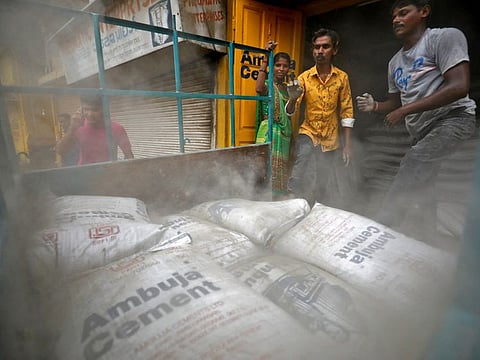Adani to buy cement firm Sanghi in first major deal post-Hindenburg
The acquisition by Ambuja is likely to be announced as soon as Wednesday

Mumbai: Indian billionaire Gautam Adani’s Ambuja Cements will buy a majority stake in Sanghi Industries as the tycoon’s ports-to-power conglomerate looks to expand cement operations across the South Asian nation, according to people familiar with the matter.
The acquisition by Ambuja is likely to be announced as soon as Wednesday, two of the people said, asking not to be identified as the information is private. Ambuja will probably buy out the owners of Sanghi, with the deal giving the company a roughly Rs50 billion ($606 million) enterprise value, according to the people. Adani Group and Sanghi didn’t immediately respond to requests for comment.
Reuters first reported that Ambuja reached an agreement to buy Sanghi.
If it goes through, the deal will propel Adani Group’s plans to double annual cement making capacity by 2027 after closing the acquisition of Holcim’s Indian assets last year, a purchase that made the conglomerate India’s second-largest producer of the construction material. Sanghi has an annual production capacity of 6.6 million metric tons of clinker and 6.1 million metric tons of cement, according to its website.
The cement company is controlled by first generation entrepreneur Ravi Sanghi, who is the firm’s chairman and managing director.
This will be the first major acquisition by Adani Group after months of damage control following US short seller Hindenburg Research’s allegations in January of years-long corporate malfeasance, which sent the group’s stocks and bonds tumbling. The conglomerate has denied any wrong doing.
On Wednesday, Ambuja reported first quarter net income of Rs6.45 billion, a 39 per cent drop from the same period a year earlier, which missed the Rs8 billion estimates by analysts surveyed by Bloomberg. The company’s shares declined as much as 2 per cent in Mumbai trading.
Sign up for the Daily Briefing
Get the latest news and updates straight to your inbox



